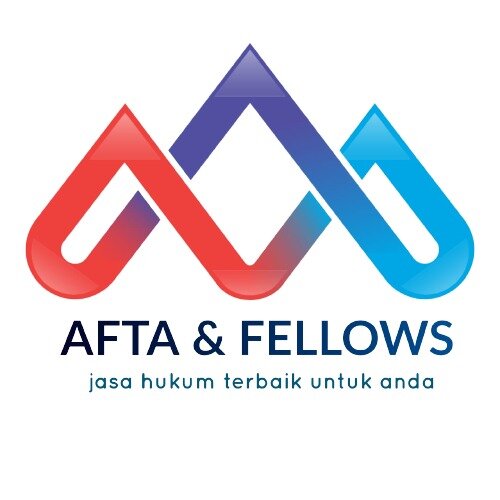Best Native People Lawyers in Yogyakarta
Share your needs with us, get contacted by law firms.
Free. Takes 2 min.
List of the best lawyers in Yogyakarta, Indonesia
About Native People Law in Yogyakarta, Indonesia
The Native People Law in Yogyakarta, Indonesia, largely revolves around the recognition, protection, and promotion of the rights of native people, known locally as the Anak Dalam, or Masyarakat Adat. The law is grounded in principles of human rights, diversity, democracy, gender equality, and social and environmental justice. It acknowledges traditional collection and hunting practices, as well as community economic system practices, bringing them within the fold of legal recognition.
Why You May Need a Lawyer
Engaging a lawyer experienced in Native People Law in Yogyakarta, Indonesia, can be advantageous in various situations. If you're a native person facing land or resource rights issues, it is essential to seek legal counsel. Also, if you're dealing with heritage preservation, discrimination, or targeted violence, a lawyer specializing in this field can extend necessary legal assistance. Lawyers with knowledge of Native People Law in Yogyakarta can also be helpful in negotiating or mediating with governmental bodies and organizations.
Local Laws Overview
Key aspects of local laws pertinent to Native People in Yogyakarta include land rights, resource rights, cultural rights, decision-making power, and non-discrimination. The acknowledgement of Native Rights and collective land rights are enshrined in the Indonesian National Law, which is highly relevant in Yogyakarta where numerous native communities reside. The law not only recognizes the cultural distinctiveness of these groups but also their rights to determine the usage of resources.
Frequently Asked Questions
1. What are the primary laws governing Native People in Yogyakarta?
The primary laws governing Native People in Yogyakarta are Indonesian National Law No. 5 of 1960 and Law No. 41 of 1999 regarding Forestry, which recognize and protect the rights of indigenous people over their ancestral lands and natural resources.
2. What is the significance of Masyarakat Adat?
Masyarakat Adat, or Indigenous People, are significant as they are the original dwellers of the land with centuries-old traditions, knowledge systems, and sustainable resource management practices that contribute greatly to diversity and ecological balance.
3. Do Native People have rights over their ancestral lands?
Yes, the National Law of Indonesia recognizes and protects the rights of Native People over their ancestral lands.
4. Can Native People decide what to do with the resources in their region?
Yes, under Law No. 41 of 1999, Native People in Yogyakarta have rights to manage and decide the use of natural resources in their region.
5. How can a lawyer help Native People with land disputes?
A lawyer can aid by challenging infringements on Native People's land rights, negotiating with other parties, and presenting the case within the judicial system, ensuring all rights are respected and upheld.
6. What recourse do Native People have in cases of discrimination?
The Indonesian National Law has strict non-discrimination laws. In case of discrimination, Native People can seek recourse through the judicial system and human rights commissions.
7. How can Native People protect their cultural heritage?
Native People can engage legal help to establish, maintain and protect their cultural sites, traditional practices and knowledge systems under the national cultural laws.
8. Are there any governmental bodies supporting Native People rights?
Yes, the National Human Rights Commission and the Ministry of Social Affairs have particular mandates to protect and promote Native People rights.
9. Does the law permit hunting and traditional collection practices?
Yes, the law allows traditional hunting and collection practices, recognising these activities as part of the Native People's cultural rights.
10. How are gender rights upheld within Native People Law?
The Native People Law in Yogyakarta adheres to the principles of gender equality, ensuring both men and women have equal access to resources, participation and decision-making power.
Additional Resources
There are several organizations and governmental bodies which can assist in understanding and navigating the legal landscape of Native People in Yogyakarta. These include the National Human Rights Commission, the Ministry of Social Affairs, AMAN (the Indigenous Peoples' Alliance of the Archipelago) as well as numerous non-governmental organizations dedicated to the recognition and protection of indigenous peoples' rights.
Next Steps
If you need legal assistance related to Native People Law in Yogyakarta, start by finding a lawyer suitable to your situation. Gather all relevant documents and information, discuss your case with your lawyer, and listen to their advice on how to proceed. Do not hesitate to ask for clarifications and be open about all aspects of your situation for an accurate representation and the most effective course of action.
Lawzana helps you find the best lawyers and law firms in Yogyakarta through a curated and pre-screened list of qualified legal professionals. Our platform offers rankings and detailed profiles of attorneys and law firms, allowing you to compare based on practice areas, including Native People, experience, and client feedback.
Each profile includes a description of the firm's areas of practice, client reviews, team members and partners, year of establishment, spoken languages, office locations, contact information, social media presence, and any published articles or resources. Most firms on our platform speak English and are experienced in both local and international legal matters.
Get a quote from top-rated law firms in Yogyakarta, Indonesia — quickly, securely, and without unnecessary hassle.
Disclaimer:
The information provided on this page is for general informational purposes only and does not constitute legal advice. While we strive to ensure the accuracy and relevance of the content, legal information may change over time, and interpretations of the law can vary. You should always consult with a qualified legal professional for advice specific to your situation.
We disclaim all liability for actions taken or not taken based on the content of this page. If you believe any information is incorrect or outdated, please contact us, and we will review and update it where appropriate.









